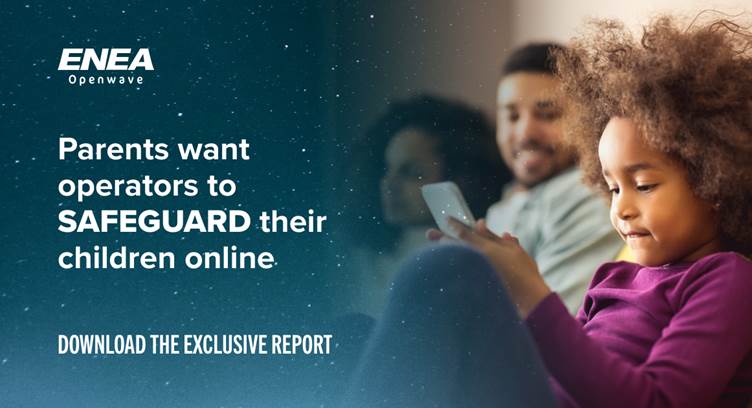A new global survey from Enea reveals that lockdowns in many of the world’s leading economies contributed to children being left unsupervised online for extended periods.
The survey suggests an urgent need for internet parental controls, especially on mobile devices. Unsupervised mobile activity was a challenge for parents of children of all ages. 44% of 11 – 15-year-olds and 30% of 6 – 10-year-olds spent at least three to six hours a day unmonitored while even parents of under-fives revealed that their children spent at least an hour a day unsupervised on a mobile device.
The survey conducted last month interviewed 4,000 households in the UK, US, France, Germany, Italy, and Spain on children’s mobile internet use. Enea’s survey highlights concerns from parents who are looking for effective safeguarding action when kids are using their mobile devices. The challenge appears to be most prevalent in the US where children spent the most amount of unsupervised time online.
When parents were asked whom they trust for online safeguarding, eight in ten parents said they would welcome assistance with parental controls from mobile operators. By contrast, less than a quarter of all parents said they would trust Facebook, Google or any other social media provider with their children’s online safety.
There is money available to operators that provide parental controls. Nearly six in ten (58%) parents said they would willingly pay an additional $5 to $14 per month for more effective safeguard controls for their children. What’s more, 56% of parents said they even would leave their mobile operator for one that offered parental controls at the same price, making children’s online safety a top priority for operators looking to retain their customers in the years to come.
Indranil Chatterjee, Chief Customer Officer at Enea
It’s clear that parents overwhelmingly trust mobile operators to support them, in contrast to other Big Tech players. And that means operators not only have a responsibility – they also have a commercial opportunity - to strengthen their safeguards for children.
Gorkem Yigit, Principal Analyst, Analysys Mason
Encryption protocols such as HTTPS and QUIC have made it more challenging for operators to stop inappropriate content such as adult, gambling or violence reaching vulnerable users.






















